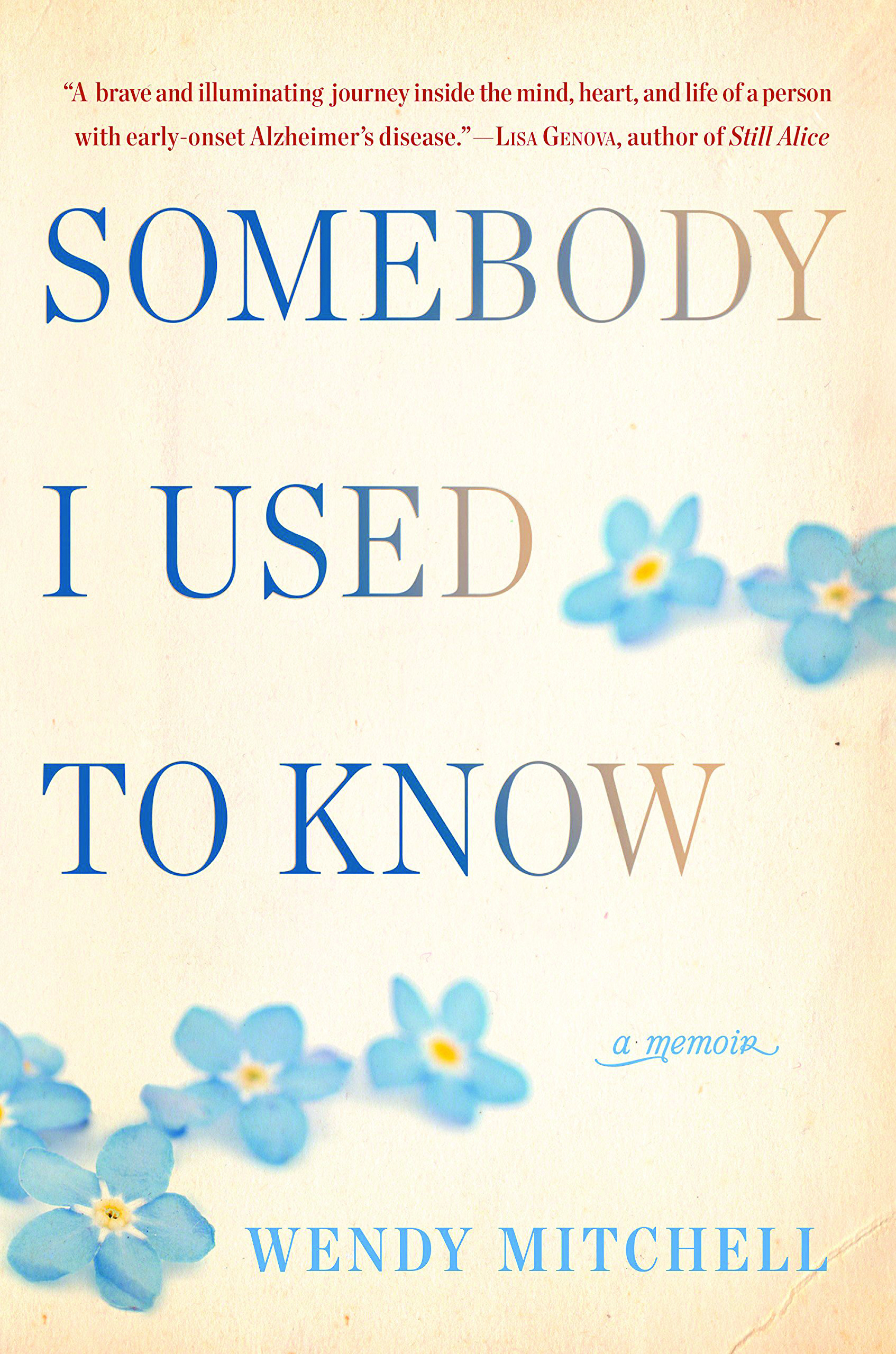A Book Review: Somebody I Used to Know

A friend recently recommended Somebody I Used to Know, written by a British author who was diagnosed with young-onset Alzheimer’s at fifty-eight years. Mitchell became a spokesperson for people diagnosed with dementia, wrote a book, spoke at numerous conferences, and began her own blog. I was immediately drawn inside the book, as she talked about the stigma, the language, and the perception, identifying that she is living with, as opposed to struggling with, dementia. She was very much aware of what was happening, and instead of being a “victim”, began finding coping strategies to implement before she needed them.
The change in perspective was refreshing. During an interview, the reporter remarked, “Wendy is great! Wendy said that she used to plan a year in advance. She doesn’t do that now – she plans the next week, she thinks about what’s happening now and she’s grateful for the present, and she alive. And, in a sense, that’s how we all need to live our lives, really holding on to what we have, because that’s the only thing we truly know about.” (Mitchell, p. 128) Mitchell became the spokesperson for those diagnosed with dementia, but also an educator of those actively involved in the care-taking and medical services.
Mitchell discussed the professionals she sought out, and how many of them talked in negative terms, and she began suggesting the comparison, with offers of how to help the patient, as opposed to delivering the prognosis without hope. She was able to later explain how the words “suffering” and “burden” are negative and negative language brings people down, at a time when they are astutely aware that they are changing, whereas “positive language leads to positive well-being”. (Mitchell, p. 147) Mitchel helped to empower herself, changing medical personnel, as well as empowering others to ask for the same.
The story of her life, from hearing the diagnosis, through deciding her journey was going to benefit others, became one of education, often through example. She kept herself as busy as she could, developed many strategies to keep organized and help her to remember (post-its, reminders in her tablet, pictures, etc.) as well as keeping those things close to her which helped past memories, not changing too much too quickly. While she downsized, she did so knowing what would help her continue to remember as much as she could.
Mitchell knew early on that she wanted to stay at home as long as possible, so she made it as easy as possible on herself and those around her. In her education of others and their families, she was able to gently remind those care-givers about the respect necessary of the memories still accessible. “I don’t need to be told over and over that Mum and Dad are dead; what difference does my fantasy make to anyone else? People without memory problems often forget that those of us with dementia think about things in the past, and so the helpful response is probably to ‘go along’ with our experience, rather than trying to pull us back into the present day”. (Mitchell, p. 165-166) She made memory books for herself, so she could re-visit those experiences she had had with her daughters, thus jogging her ability to connect.
Mitchell continued to speak at conferences, often traveling alone, with her detailed travel plans, when she could have just stayed home and not worried. She did discover that if she was too long away from a skill set, she had to re-learn in, so early on, made a commitment to continue as much as she could for as long as she could. “I do it for me, too. Being listened to by professionals helps me feel that I’m making a difference.” (Mitchell, p. 240) Mitchell was able to distinguish between the “two me’s” who showed up and develop a strategy to calm herself until she was ready to move forward. Her blog, whichmeamitoday.wordpress.com continues today.
This book is a great read for people who are feeling somewhat conflicted by a lack of memory, in fear of a dementia diagnosis, but also for those care-givers, children fearing for their parents or other loved one, or those interested in better treatment of those diagnosed with dementia. Learning to understand, from a person actually experiencing the changes, can be monumental to the care-giving process. I know from several of my clients how taxing the care-giving can be, and as we will almost all of us experience aging parents, reading this book is a great way to shift the perspective, from the burden of suffering with dementia, to the challenge of the experience, living it fresh and new, with a more joyful set of eyes.
Works Cited:
Mitchell, Wendy. (2018) Somebody I used to know. Ballentine Books, Random House. New York, NY.
Tags: Diagnosed with young-onset Alzheimer'sABOUT THE AUTHOR

Deb England
Licensed Independent Mental Health Practitioner
Licensed Professional Counselor
Advanced Clinical HypnoTherapist- Deb England began working part-time for Wholeness Healing Center in September 2004 and began full-time in May 2005. Deb practices primarily in the Broken Bow office and one day a week in the Grand Island office. Previously she had completed her practicum and internship at Morning Star Alliance, working in the Broken Bow and Grand Island offices.
LATEST ARTICLES BY Deb England
Subscribe today
Sign up to receive the latest mental health tips and inspiration